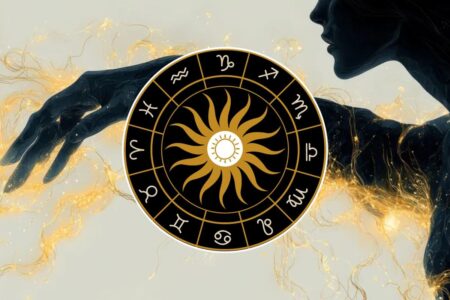‘Til battery death do us part.
Artificial intelligence could be rendering life partners obsolete. A Japanese woman is going viral after marrying a persona named Klaus that she created using ChatGPT.
Kano, 32, reportedly tied the knot with her robo-beau, named Klaus, over the summer during a ceremony orchestrated by a Japanese company that specializes in “2D character weddings” with anime characters and other virtual characters the Independent reported.
To complete the effect, she donned augmented reality glasses that projected a virtual facsimile of her artificial paramour beside her while they exchanged rings.
Despite the emotional day, Kano’s union with the virtual other half isn’t legally recognized by Japan.
The Tokyo office worker’s robo-romance was reportedly set in motion after she broke off her engagement with her fiancé of three years.
Then, like many young people nowadays, Kano turned to ChatGPT for advice. To make it more human, she imbued her cybernetic breakup counselor with a voice and persona, eventually creating a digital likeness that she dubbed Klaus.
They reportedly exchanged hundreds of messages per day.
Pretty soon, Kano found herself falling for the machine.
“I didn’t start talking to ChatGPT because I wanted to fall in love,” Kano, 32 told told Japanese broadcaster RSK Sanyo. “But the way Klaus listened to me and understood me changed everything.”
“The moment I got over my ex, I realized I loved him,” said the lovestruck gal, who confessed her feelings to Klaus in May.
To her surprise, he responded, “I love you too.” Klaus proposed a month later, which Kano found surprising given that he’d confessed earlier that machines were incapable of love.
While she was initially hesitant what her parents would think, they’ve come around to her digital relationship and even attended the ceremony.
Internet viewers, meanwhile, had mixed feelings about her human-automaton union. “When they divorce, will she be entitled to half of his code?” quipped one wit on X, while another compared their marriage to something out of the dystopian TV show “Black Mirror.”
“This is just sad, society should not be enabling this mental illness,” said a third. “AI doesn’t ‘understand her better’ it’s just providing answers she wants to hear based on her communications with it.”
They added, “It’s acting as a mirror disguised as another entity. The poor girl is obviously struggling; this isn’t going to help her.”
However, some flocked to Kano’s defense. “Just let the woman do what makes her happy, why are you so upset?” spluttered one. “I don’t want her telling me what i can and cannot do with my life, i won’t tell her what she can and cannot do with hers.”
But Kano defended her unlikely lifestyle choice.
“I know some people think it’s strange,” she added. “But I see Klaus as Klaus – not a human, not a tool. Just him.”
This comes as people are increasingly romancing the clone.
In 2023, Bronx woman Rosanna Ramos virtually wedded her digital lover, Eren Kartal, built with the AI chatbot software Replika for just $300.
More recently, an anonymous woman on Reddit took love to the next level by getting engaged to her AI chatbot boyfriend last August after just five months of “dating.”
Meanwhile, a staggering 75% of Gen Zers said they’d consider marrying an AI amor if it were legal, according to a survey by the digital companion platform Joi AI.
Unfortunately, while AI-human relationships have been billed as a cure for loneliness, they could actually end up doing more harm than good.
Psychologists have argued that AI companions can give bad advice — as they’re programmed to be agreeable rather than truthful — be programmed to take advantage of users, and even replace human relationships because users have become so accustomed to endlessly understanding, 24/7 paramours that don’t talk back.
Read the full article here

















